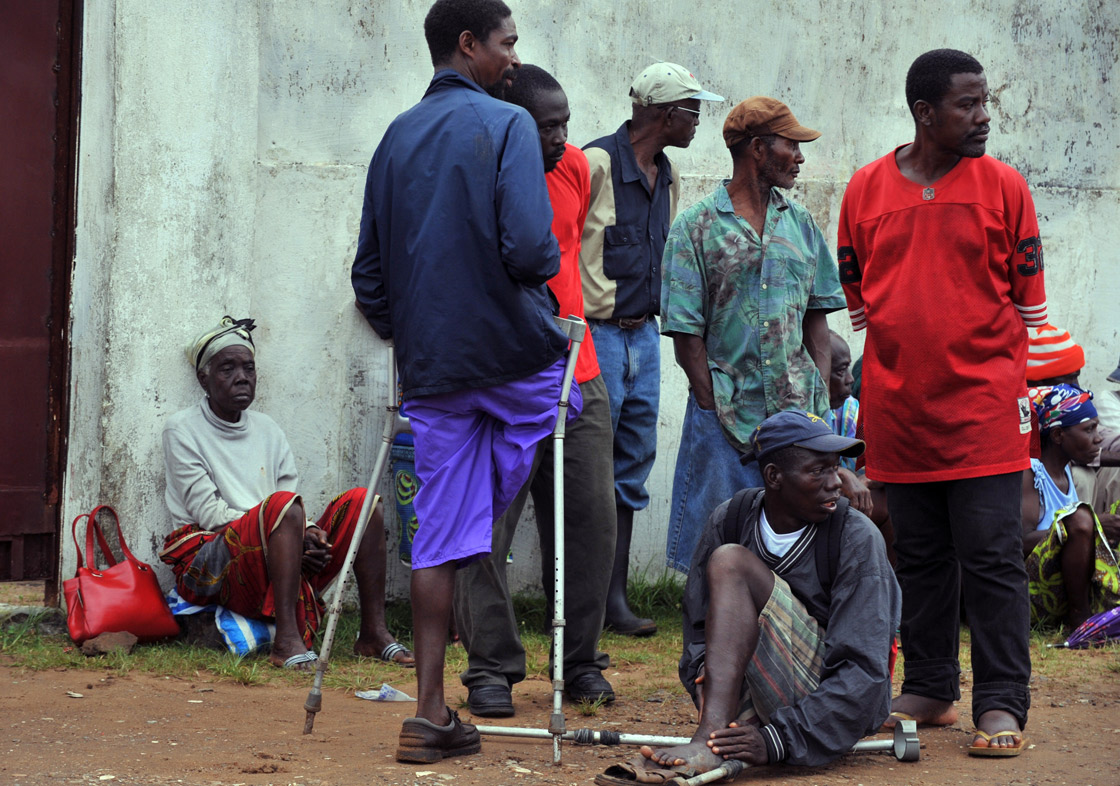As my time here in Liberia comes to a close, some of my most profound experiences have been chance encounters with strangers who tell of the unhealed wounds in this post-conflict society.

That’s what happened during my ride across Monrovia with Sam Brown.
Though I have been working with the Liberian Broadcasting Service (LBS) since last week, Sam and I had not crossed paths. He’s an Operations Officer–a behind-the-scenes logistics guy.
Sam gave me a ride back from LBS to my apartment on the other side of town when my regular driver “forgot” to pick me up.
(And no, that’s not the first time that happened to me).
I’d like to thank that driver for being a no-show. Sam taught me something about Liberia I would not have otherwise learned in my short time here.
Amid choking city traffic I struck up a conversation, asking him how long he had worked at LBS.
“Two years,” he said, holding up two fingers.
“And what did you do before?” I asked.
Sam told me he worked at the Truth and Reconciliation Commission (TRC). Created in 2005, it was tasked with investigating the horrific human rights violations during more than 20 years of civil war.
Like his current role, he was the logistics guy. He coordinated trips for investigators to Liberia’s rural areas – where the TRC found the most ruthless crimes against humanity were inflicted on villagers by rebel groups.
Sam got deeply involved – travelling to the communities to sit in on hearings where the most unimaginable terror was recounted.
Over the course of several years, Sam told me the commission heard from some 17,000 victims, witnesses and others. It named notorious warlords who should be brought to justice.
Though the TRC report was released in 2009, it gathers dust on political shelves. It is controversial, as it includes Liberian President Ellen Johnson Sirleaf, among some 50 politicians recommended to be barred from public office for their support of perpetrators of the brutal conflicts from the 1980s until 2003.
When the TRC’s recommendation about politicians was challenged at the Supreme Court in 2011, it was declared unconstitutional due to lack of due process.
As we drove across town, Sam recounted some of the horrific things he heard during those hearings. He watched victims sob on the stand. It made him sick. He says he carries psychological scars from that period.
When I sat down for dinner later, I couldn’t get the images out of my own head.
Sam believes the lack of justice since the war ended is the cause of a lot of anxiety and anger among Liberians. He says this country is on the cusp of another crisis if faith in the system is not restored.
You see examples in the street of how people don’t trust the authorities to deliver justice. A friend of mine encountered an intruder last week, and after chasing him out of the apartment with her roommate, he was confronted by a mob outside the compound. Angry members of the community were ready to beat him up for trying to steal.
He escaped unscathed.
People have so little confidence in a corrupt police force, they would rather take matters into their own hands.
It really illustrates that this country is still on edge.
The child soldiers and warlords may be gone from the streets. Fear has subsided. Everyday life carries on.
But deep down inside, most everyone I meet still carries the trauma of war.




Comments